Paternity/ Maternity
Parental status matters
Legal status of mothers
The woman giving birth to the child shall be considered the mother of that child. If the mother’s person cannot be established, the child may bring action requesting the court to award mother’s status to the person he/she designates. In the event of the child’s death, this right shall accrue upon his/her descendants. An action for establishing maternity by way of judicial process may also be brought by a person who claims to be the mother of the child. If descent results from a reproduction procedure, no action may be brought by a woman who made a donation of gamete or embryo for the procedure.
Exercising the right to bring action
A maternity suit shall be brought by the entitled party in person. A minor of limited legal capacity or any person whose capacity in respect of making legal statements relating to descent has been partially limited shall be entitled to bring action with the consent of his/her legal representative. If the legal representative is unavailable for any extended period of time to give consent, or if refuses to consent, the guardian authority may do so in his stead. If the entitled party is incompetent, the action may be brought in his/her name by the legal representative with the guardian authority’s consent.
Respondents in maternity suits, legal effects of any change in maternity
The action shall be brought by the child or his/her descendant against the mother or the person shown in the registry of births as the mother, or by the mother against the child or the person shown in the registry of births as the mother. If descent results from a reproduction procedure, maternity may not be established by way of judicial process with respect to a woman who made a donation of gamete or embryo for the procedure. If in an action for establishing maternity by way of judicial process any change in maternity status stemming from the woman’s marriage has an effect on the presumption of paternity, the husband who is to be considered the father of the child by way of presumption based on wedlock shall also be named as defendant in the action. If the party against whom the action is to be brought is no longer alive, the guardian ad litem appointed by the court shall be named as the defendant in the action. In the event of any change in maternity, the child shall have the option to decide to take up the name of his/her biological mother or to keep his/her existing surname. In justified cases the court may authorize the child to retain his/her surname. The judgment delivered in a maternity suit applies to all parties involved.
Facts establishing paternity
Paternity is established:
a) by way of wedlock;
b) by way special procedures for the purpose of human reproduction in the case of civil partnerships (hereinafter referred to as „reproduction procedure”);
c) by way of acknowledgement of paternity; or
d) by way of court decision.
Maintenance
Marital agreement
Inheritance
Dissolution of marriage
Child custody
Parental kidnapping
Mediation
Presumption based on acknowledgement of paternity
If the mother was not married between the beginning of the time of conception and the date when the child was born, and did not participate in a reproduction procedure invoking the presumption of paternity, or if the presumption of paternity was rebutted, the man who admitted in a fully enforceable acknowledgement of paternity that he is the father of the child shall be considered the father of that child. The man who makes an acknowledgement of paternity must be at least sixteen years older than the child. An acknowledgement of paternity can be made from the beginning of the time of conception of the child. If the acknowledgement of paternity is made before the birth of the child, the declaration shall become fully enforceable when the child is born. The acknowledgement of paternity shall be made in person. An acknowledgement of paternity made by a minor of limited legal capacity and any person whose capacity in respect of making legal statements relating to descent has been partially limited shall be considered
effective with the consent of his/her legal representative. If the legal representative is unavailable for any extended period of time to give consent, or if refuses to consent, the guardian authority may do so in his stead.
Grounds for challenging the presumption of paternity
The presumption of paternity may be challenged alleging that the man presumed to be the father did not have sexual contact with the mother of the child at the time of conception, or that he could not have fathered the child based on the relevant circumstances. If the presumption of paternity is based on a fully enforceable acknowledgement of paternity, it may be challenged alleging that:
a) the statement is not fully enforceable in the absence of the relevant legal requirements;
b) the acknowledgement of paternity was made in error, or under misrepresentation or duress; or
c) the acknowledgement of paternity was made for the purpose of circumventing the law.
Challenging the presumption of paternity in non-contentious proceedings
No action for the rebuttal of the presumption of paternity is necessary if it exists based on the mother’s marriage, matrimonial relationship was terminated at least three hundred days previously, and the natural father of the child wishes to make a fully enforceable acknowledgement of paternity to declare that he is the father of the child. Upon the joint request of the presumed father, the mother and the man who wishes to make a fully enforceable acknowledgement of paternity to declare that he is the father of the child, the court shall establish in non-contentious proceedings that the child’s father is not the mother’s husband or former husband. In the same action paternity shall be established by means of fully enforceable acknowledgement of paternity.
Maintenance
Marital agreement
Inheritance
Dissolution of marriage
Child custody
Parental kidnapping
Mediation
ZHK Zöld-Horváth-Kölcsényi Law Firm
Contact
Appointments may only be scheduled after prior consultation
via phone or e-mail.
Address
1145 Budapest, Mexikói Street. 52/A.
Floor 1, door 5, doorbell 13
Let us help you
Send a question to our lawyers!





